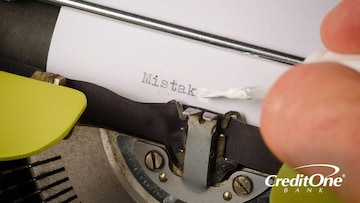How Often Should You Check Your Credit Report?
June 07, 2024
Staying on top of your finances requires understanding what’s in your credit reports and knowing how often you need to monitor them.

In this article:
Introduction
Many behaviors and activities could affect your credit score. But if your goal is to keep that number as high as possible, regularly monitoring your credit report is an important step.
The law says you’re entitled to each of your credit reports once a year, but recent updates give you free access every week. Taking advantage of that is a great credit-boosting strategy.
Difference Between Credit Report and Credit Score
People often confuse the terms, but a credit report and credit score are two different — yet related — things.
- Your credit report is a detailed statement of credit inquiries, relevant public records, and borrowing history. It includes a list of your current and recent credit accounts, with information on balances, debts, defaults, and payment activity. The three major credit bureaus — Experian, Equifax and TransUnion — each generate their own standardized credit report.
- Your credit score is a three-digit number based on the data in your credit report. This score measures your overall creditworthiness, and the two largest companies that calculate and issue them are FICO and VantageScore. Both credit-scoring models range from 300-850, broken down into different categories from poor to good to excellent.
What Does a Credit Report Include?
When you’re reading your credit report, it can seem complicated at first glance. But it’s conveniently broken out into sections, with your personal information at the top. This part includes your name, address, previous addresses, birthdate, Social Security number, and employment records.
Next you’ll see all your current and recent account information, including the type of credit or loan, the status of the account, and details on each account’s history. That’s your opening date, payment history, current balance, and credit limit. Any credit history from the past 10 years could be detailed here, but not all creditors report to the credit bureaus.
Your credit report also lists all your credit inquiries, both hard and soft pulls. But you’re the only one who can see the soft credit checks, while others just have access to the hard inquiries. Finally, there’s a dedicated section for collections and public records, such as bankruptcies, foreclosures, civil judgments and tax liens.
Know What Lenders May See
Lenders pull your credit report to see all this data, which lets them decide whether to offer you more credit. The only thing they can’t see is the soft inquiries, such as when you check your own report or see if you pre-qualify for a credit card.
You may be declined for a new loan or credit card if your credit report has some red flags. That could include too many accounts, balances that are too high, or delinquent payment history. But if you have a positive payment history and a reasonable credit utilization ratio, the lender may conclude that you’re a good candidate for a new account.
Why Should You Check Your Credit Report?
Now that you know what lenders will see, it’s a good idea to monitor your credit report so you know in advance what they’re looking at. This gives you an idea of how likely you are to be approved for new accounts before you apply.
Checking your credit report also lets you stay on top of a few important things.
Catch Reporting Errors
According to a study from Consumer Reports, more than a third of volunteers found a mistake on at least one of their credit reports. These reporting errors can hurt your score and make it harder to get competitive rates on new credit cards, mortgages, and auto loans. Your credit report will likely be several pages long, but it’s important to carefully review it for even a minor error. If you do find incorrect information regarding payment history, balances, delinquent payments, card opening dates, or even personal data, you can dispute the errors and have them corrected or removed from your report.
Deter Fraud and Identity Theft
Monitoring your credit report can also help you detect potential fraud and identity theft early. If an impostor opens a credit card in your name, that account will be documented on your credit report. If you do spot strange activity, you can freeze your reports or place a free 90-day fraud alert on your account. This credit freeze or alert makes it harder for scam artists to open an account or transact under your name.
Qualify for Premium Rates
If you’re about to apply for a large line of credit, loan or mortgage, it’s especially important to know where you stand on the credit spectrum. Monitoring your credit report closely lets you identify factors that could be hurting your credit score and take steps to quickly improve it. Less negative history on your credit report typically translates into a higher credit score, meaning lenders will offer better rates. So a good credit score could potentially save you thousands in interest payments over the long run.
How Can You Get Your Credit Report?
The easiest and best place to get your credit reports is at the federally endorsed AnnualCreditReport.com website. Despite the name, and the official law that says you’re eligible to get your reports at no cost every year, this resource now gives you free access every week. Since there are three major credit bureaus, you have three credit reports, and you can choose to get one, two, or all three.
In addition to that, some banks and credit card companies offer free monthly credit score updates and credit report summaries to help customers and cardmembers keep a pulse on their credit health.
Who Can Request To See Your Credit Report?
A lot of different people and companies can access your credit report, including banks, creditors, lenders, collection agencies, government branches, utility companies, insurance companies, landlords, and even employers.
Any time you apply for new credit, including a credit card, mortgage, student loan or car financing, that lender will likely look at your credit report. If you submit a rental application for a new apartment, that will usually also trigger a credit inquiry. The next one will come when you set up your new utility services or mobile phone plan. And if you apply for a job, get car or home insurance, or end up in collections, someone will typically check your credit report. Any of this activity could lower your credit score slightly.
How Often Should You Check Your Credit Report?
Even though the Fair Credit Reporting Act legally grants you access to check your credit reports annually, it’s a good idea to pull them more often now that you can get them every week for free. But whether you choose to do it weekly, monthly, or every few months is entirely up to you — the more important point is that you’re monitoring your reports regularly.
Bottom Line
It’s important to examine your credit reports so you know what lenders will see when they run your credit. It also lets you keep track of any positive or negative trends and fix the most common errors.
If you’d like a credit card that offers you free monthly access to your credit score and credit report summary, Credit One Bank has a range of options. You can see if you pre-qualify without impacting your credit score.


![How to Dispute Errors in Your Credit Report [Infographic]](/content/dam/cob-corp-acquisition/images/articles/2021/02/104343 COC_61_DisputeErrors.jpg?imwidth=360)
